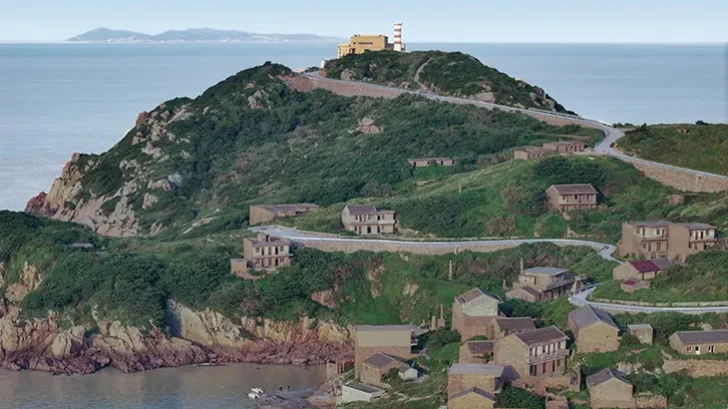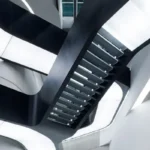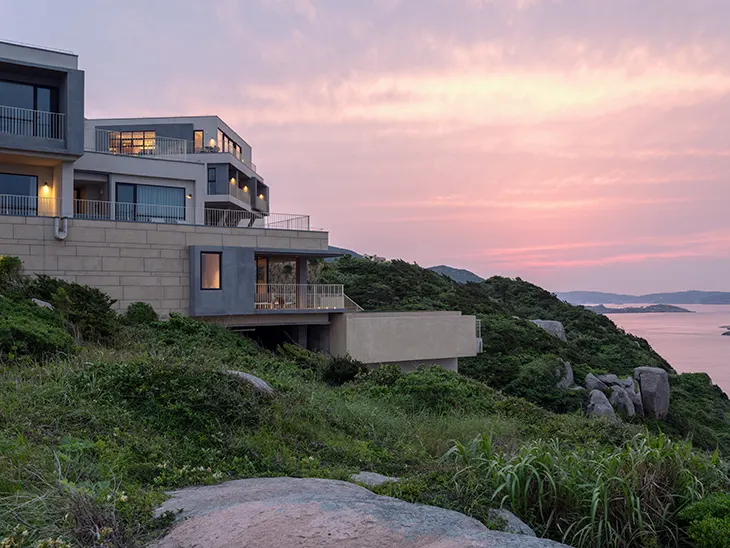
WJ STUDIO’s Lost Villa. Huanglong Island Lighthouse Hotel is an inquiry into how architecture can carry memory, ecology, and human experience forward. Conceived within the context of a remote archipelago in the Zhoushan Islands, the design is deeply tied to the realities of rural depopulation, fragile ecosystems, and cultural heritage.
HOTELS
Rather than impose new forms, the studio approached the site with sensitivity to its geology, its fishing traditions, and its demographic shifts, asking how design could sustain community while inviting new life onto the island.
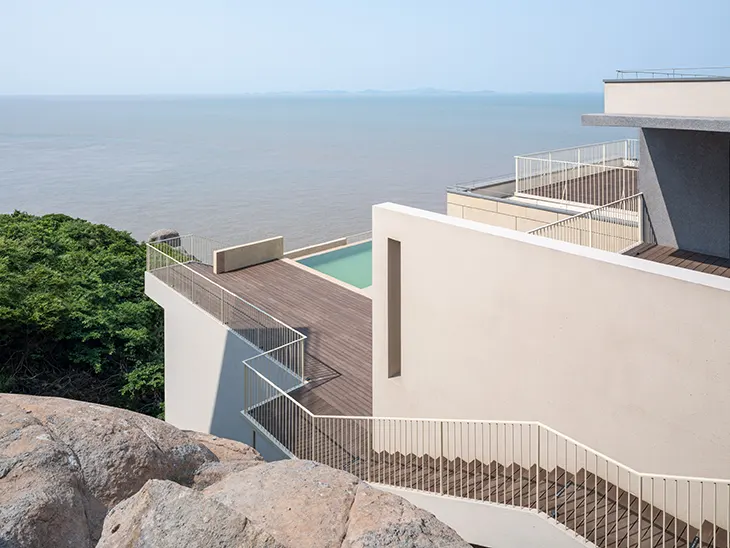
At the core of the project is the idea of time expressed in three dimensions: natural, historical, and human. The natural topography, reefs, windswept vegetation, and shifting seas, defined both the placement and the massing of the hotel. Historical time is inscribed in the stone villages and weathered roads, where WJ STUDIO sought continuity rather than erasure, rebuilding pathways as connective tissue between old structures and new interventions. Human time unfolds through the experiential sequences crafted for guests, from narrow winding routes that echo the island’s terrain to sudden panoramic openings where sea and sky overwhelm the senses.
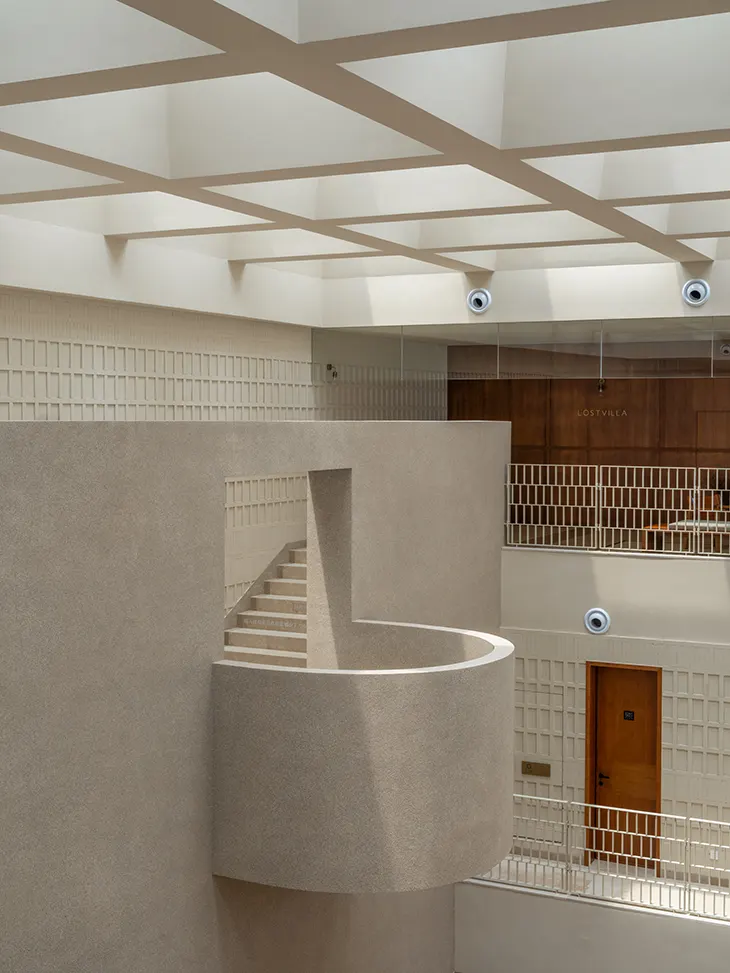
Architecturally, the Lighthouse Hotel complex is embedded within the reef formations, its stepped massing adapting to the slope and echoing the adjacent village clusters. Volumes are suspended on isolated foundations above the rugged rock, creating a dialogue between solidity and lightness. Inside, moments of “hidden–peek–open” spatial rhythm allow guests to encounter the island as a series of revelations: glimpses of sea through slit windows, sunlight cutting across preserved rock formations, or expansive framed views that suspend time itself. Guest rooms draw on vernacular proportions while framing specific seasonal and celestial conditions, rooting comfort in a lived dialogue with the landscape.
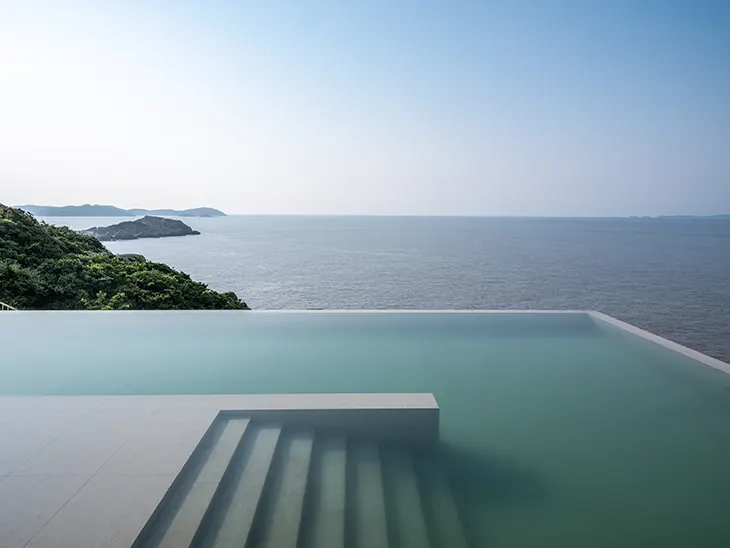
The project ultimately reframes hospitality as rural renewal. Rather than overwrite Huanglong Island’s fragile social fabric, the design interlaces past and present, positioning architecture as a medium for ecological and cultural continuity. Lost Villa. Huanglong Island Lighthouse Hotel demonstrates how tourism can become a vessel for memory, an invitation to experience time in its layered forms, and a potential catalyst for reimagining the future of depopulated island settlements.
